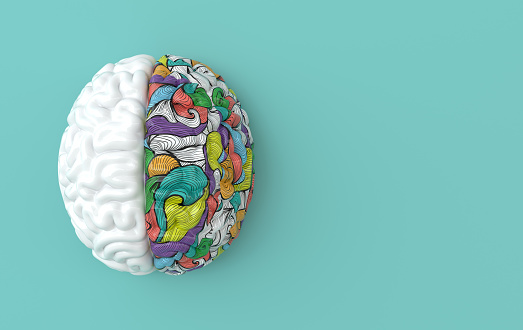As the brain ages, changes in cognitive abilities occur. While some of these changes are normal, some of the changes, like those that occur with dementia or Alzheimer’s disease, are not. Your brain also experiences physical changes as you age. Here, we’ll look at what brain aging looks like and what you can expect.
Brain aging and thinking
Your brain controls many aspects of thinking including planning, remembering, organizing, making decisions and more. As you age, changes in thinking can occur. You may find you have:
- Difficulty recalling names or words
- Problems multitasking
- A decrease in your attention span
These changes are normal as you age, and it’s important to keep in mind that despite these changes, you can still learn new things, create new memories and improve your vocabulary and language skills.
The brain also shrinks in volume as you age — particularly the frontal cortex. The frontal cortex participates “in high-level cognitive function, including attention, working memory, and social-emotional evaluation of stimuli.”
The prefrontal cortex, cerebellum and hippocampus also shrink during the aging process.
Changes in the neurons can also contribute to the shrinkage of the brain. The number of connections between brain cells also decreases. This can also affect thinking and memory.
Though researchers have found that adult brains don’t form new neurons — a process called neurogenesis — researchers have also found that in mice, strategies like regular exercise can help boost neurogenesis.
Chemical changes take place, too. Researchers have found that brains in people in their 60s or 70s have less serotonin in their brains if they’re experiencing mild cognitive impairment. Other studies have found that aging brains synthesize less dopamine than younger brains. Dopamine is known as a feel-good neurotransmitter, influencing motor function, mood and decision-making. The neurotransmitter acts as a messenger between neurons and is released when your brain is expecting a reward.
Other brain changes
In addition to the shrinkage of certain areas and changes in neurogenesis and neurotransmitters, the aging brain also may experience a decrease in blood flow and/or an increase in inflammation.
What improves with age
While it may seem like cognitive function declines with age, there are some areas that improve as you get older. These include:
- Inductive reasoning. Experts feel that older adults are less likely to rush to judgment and that this is an enormous help in everyday problem-solving.
- Verbal abilities
- Spatial reasoning
- Basic math
- Accentuating the positive
As always, if you’re concerned about your cognitive health, talk to your doctor.










